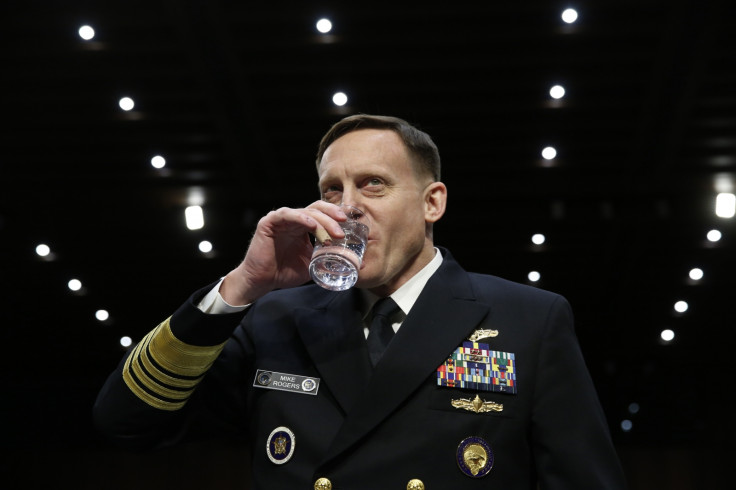NSA chief: WikiLeaks US election disclosures were 'conscious effort by a nation-state'
The email leaks were 'not something that was done casually', suggests head of National Security Agency.

The leaks and disclosures published by WikiLeaks in the run-up to the US presidential election this year were a "conscious effort by a nation-state to attempt to achieve a specific effect", according to the director of the National Security Agency (NSA).
US intelligence chief Michael Rogers, who has managed the secretive agency since 2014, said during a Wall Street Journal conference on 15 November that Hillary Clinton's presidential bid was hampered by state-sponsored hackers who worked to influence the outcome of the 2016 election.
"There shouldn't be any doubt in anybody's mind – this was not something that was done casually," he said when asked about WikiLeaks' publications. "This was not something that was done by chance. This was not a target that was selected purely arbitrarily."
The director did not name the nation-state in question, however he is on-record as saying that "Russians were behind the penetrations" while previously discussing intrusions at the Democratic National Committee (DNC) and the Democratic Congressional Campaign Committee.
WikiLeaks, in a series of leaks throughout September and October, released 20,000 DNC emails and tens of thousands of messages from John Podesta, a close aide to Hillary Clinton. It is believed the infiltrations in the US were carried out by hackers affiliated with the Kremlin.
Despite initial hesitation, the US intelligence community officially accused Russia of overstepping the boundaries of cyber-espionage in October. It said that "only Russia's senior-most officials" could have authorised the cyberattacks.
The statement added: "Disclosures of alleged hacked emails on sites like DCLeaks.com and WikiLeaks and by the Guccifer 2.0 online persona are consistent with the methods and motivations of Russian-directed efforts. These thefts [...] are intended to interfere with the US election process."
Recently, a pro-Kremlin political analyst called Sergey Markov, previously described as an 'informal adviser' to Russian President Vladimir Putin, said Russian forces may have "helped a bit" in the WikiLeaks releases. He was speaking following the victory of president-elect Donald Trump.
"A conscious effort by a nation-state to attempt to achieve a specific effect" NSA chief on WikiLeaks https://t.co/kvmrTyVE30 #WSJCEOCouncil pic.twitter.com/AT2pxK2ROR
— Wall Street Journal (@WSJ) November 15, 2016
On the conference stage, Rodgers said changes are now under way to "make life harder for hackers" in the future. He said: "We are trying to harden systems, increase the level of knowledge and increase capabilities – both in the private sector and the government.
"We are trying to deal directly with a host of nation-states around the world and engaging with them in terms of what's acceptable from our perspective, and what is not [...] cyber does not recognise these arbitrary lines that we have drawn — it doesn't recognise the geography."
WikiLeaks founder Julian Assange has consistently brushed off accusations that his organisation is linked to the Kremlin or Russian interests. Many critics – as evidenced by a recent Reddit AMA appearance – remain openly sceptical of these denials.
In a statement released just prior to the election, Assange said that WikiLeaks "must publish and be damned" and that it "remains committed to publishing information that informs the public, even if many, especially those in power, would prefer not to see it."
He wrote: "The Clinton campaign [...] pointed to unnamed sources or to speculative and vague statements from the intelligence community to suggest a nefarious allegiance with Russia. The campaign was unable to invoke evidence about our publications - because none exists."
© Copyright IBTimes 2025. All rights reserved.






















